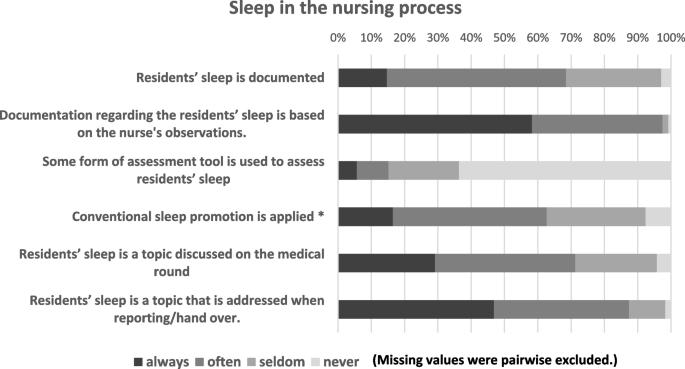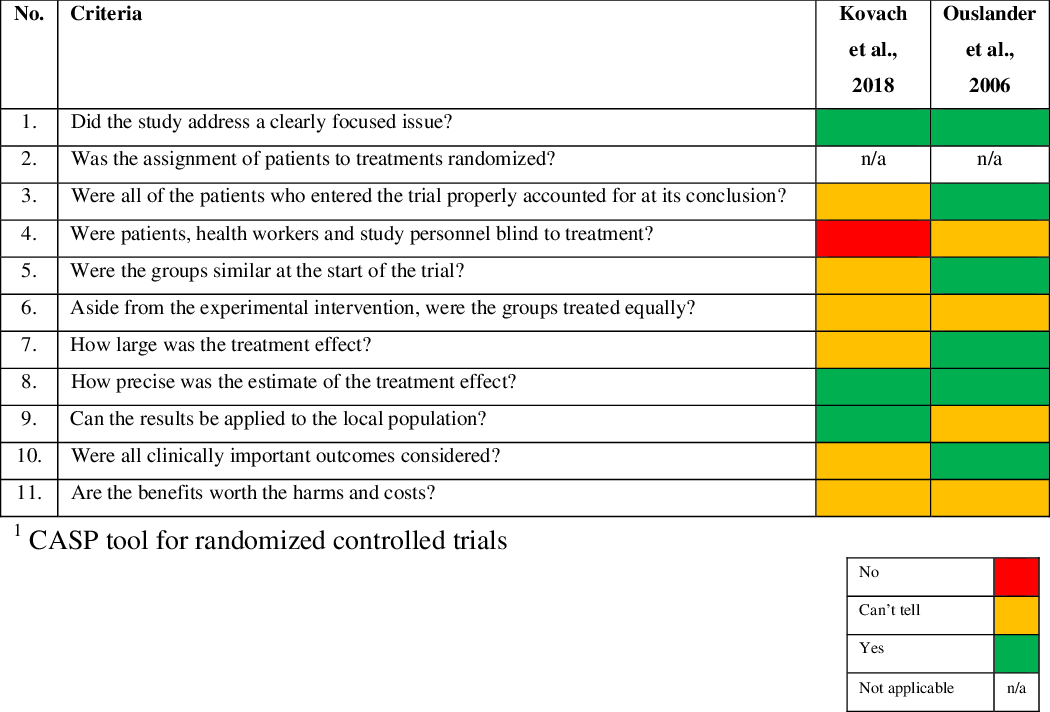Attitudes and knowledge of nurses working at night and sleep promotion in nursing home residents: multicenter cross-sectional survey, BMC Geriatrics
4.6 (207) In stock

Background Sleep disturbances are common in nursing home residents and challenging for their nurses. Knowledge about sleep and sleep promoting factors is essential to provide adequate sleep management, where nurses play a key role. Therefore, nurses’ knowledge and attitudes towards sleep and sleep promoting interventions is important as enabling or inhibiting factor for successful sleep management. Methods A multicenter cross-sectional study was conducted among nurses working wholly or partially at night in nursing homes in Germany. Data were collected between February and April 2021 via online or paper and pencil questionnaires, comprising 56 items. Nursing homes were recruited through existing cooperation with the study centers as well as via nursing home registers. Results Finally, 138 nursing homes participated and 271 nurses completed the survey. Nurses agreed that sleep disturbances are an important topic with important impact on resident’ health. Although, the assessment of sleep was seen as nurses’ responsibility, only 40 nurses (14.7%) stated that residents’ sleep was always documented. Only 21.7% reported the availability of policy documents providing guidance regarding the management of sleep disturbances. The vast majority (93.2%) reported never having received training about sleep and management of sleep disturbances after their basic nursing training. Conclusions Our results indicate that nurses working at night can play an important role in residents’ sleep promotion. The findings indicate nurses’ educational needs regarding sleep and sleep promotion. Nursing homes should implement institutional guidelines in order to promote residents’ sleep based on adequate evidence-based non-pharmacological interventions.

A complex intervention to promote prevention of delirium in older adults by targeting caregiver's participation during and after hospital discharge – study protocol of the TRAnsport and DElirium in older people (TRADE)

2018-2020 Bloomberg Nursing Research Report by Lawrence Bloomberg Faculty of Nursing, University of Toronto - Issuu

Barriers to Promoting Mobility in Hospitalized Older Adults

Wearables and the medical revolution

Do nurses have a different physical health profile? A systematic review of experimental and observational studies on nurses' physical health - Fronteira - 2011 - Journal of Clinical Nursing - Wiley Online Library

Characteristics of multicomponent, nonpharmacological interventions to reduce or avoid sleep disturbances in nursing home residents: a systematic review, International Psychogeriatrics

Kathryn Lee, RN, PhD The Center for Health and Community

PDF) The components of nursing competence in caring for older people in Iranian hospitals: A qualitative study

Special Issue on Social Emergency Medicine by Western Journal of Emergency Medicine - Issuu

Delirium in patients with cancer: assessment, impact, mechanisms and management
PDF] Nurses' Experiences of Supporting Sleep in Hospital s – A
The Signs (and Dangers) of a Sleepy Nurse
Why Nursing Your Baby To Sleep Is Normal – Legendairy Milk
Tired Nurse Health Tips: When Sufficient Sleep Isn't Possible





